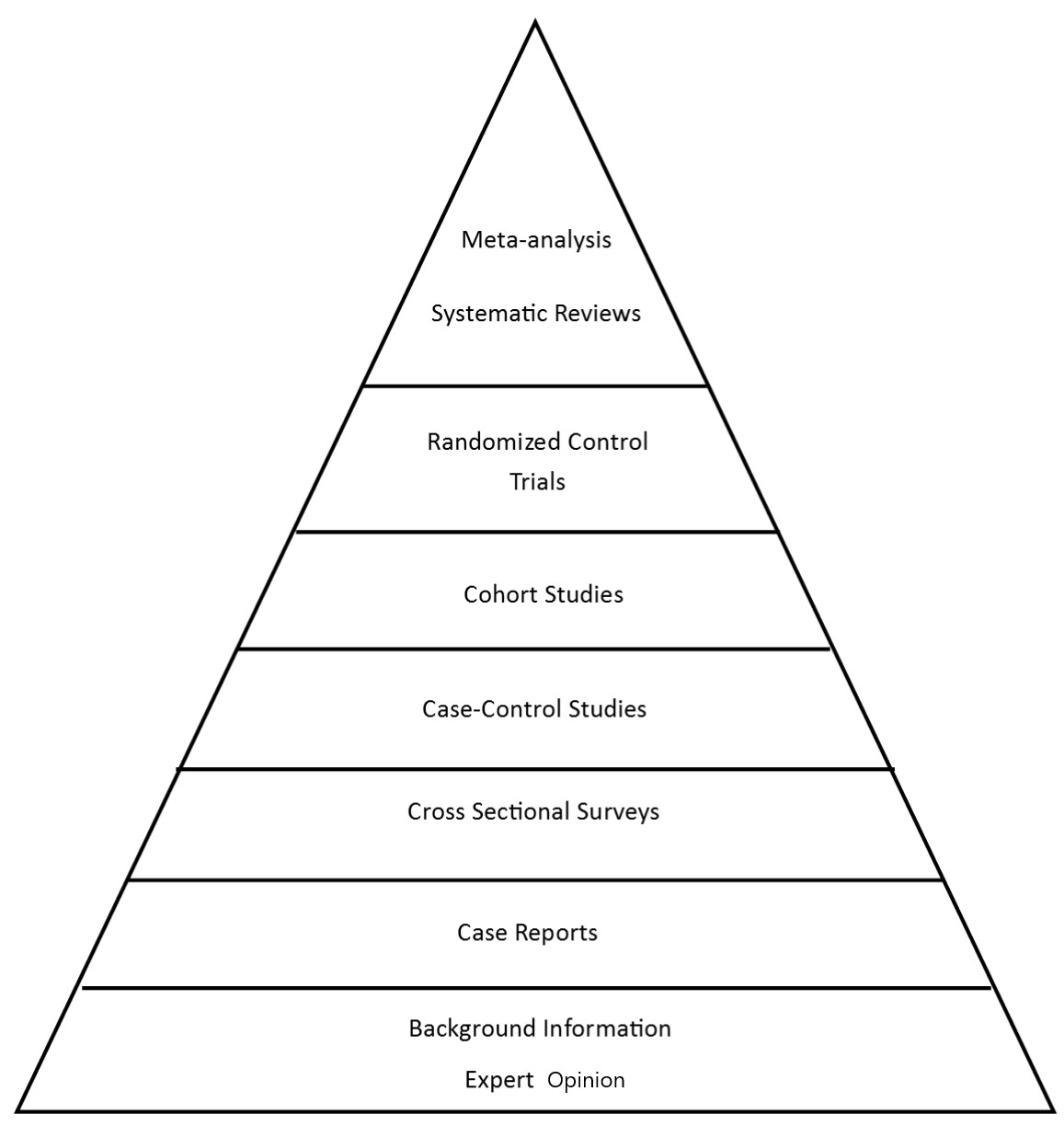Evidence-based medicine (EBM) is the use of the best evidence, which is based on current, reviewed and analyzed research, to provide optimal care for the patient.
According to Sackett, Rosenberg, Gray, Haynes, and Richardson (1996) "Evidence-based medicine is the conscientious, explicit, and judicious use of current best evidence in making decisions about the care of individual patients."
According to Sackett, Rosenberg, Gray, Haynes, and Richardson (1996) "Evidence-based medicine is the conscientious, explicit, and judicious use of current best evidence in making decisions about the care of individual patients."
Evidence based medicine:What it is and what it isn't
In nursing, EBM is often referred to as Evidence-based Practice (EBP). EBP is a term also used in other disciplines outside medicine such as pyschology or education. Your instructor may have a preference for one term over the other.
The significance of EBM and EBP is that decisions are made based on research that has been reviewed and verified as the best evidence available.
The significance of EBM and EBP is that decisions are made based on research that has been reviewed and verified as the best evidence available.
Understanding information, research, and reviewed research as a hierarchy helps in understanding EBM and EBP. Often you encounter background information and original research, which are the more common types of information available to you,
However, to find EBM information you have to look for meta-anlysis and systematic reviews. These types of information are at the top of the hierarchy of evidence pyramid, the pyramid is below and definitions of these different resources are at the right.
However, to find EBM information you have to look for meta-anlysis and systematic reviews. These types of information are at the top of the hierarchy of evidence pyramid, the pyramid is below and definitions of these different resources are at the right.
Data from multiple scholarly and peer reviewed research is statistically analyzed to identify relationships and compare and contrast results in order to test the research and better understand the findings.
A review of multiple scholarly and peer reviewed research articles related to a topic. The reviewers identify the best quality research and evaluate, sythesize, and summarize the findings.
An experiment that tests the effectiveness of a treatment or medical intervention on subjects that are randomly assigned to either the control (no exposure to intervention) group or experimental (exposed to intervention) group.
A longitudinal study (data from study is collected over a period of time) of two groups (cohorts). One cohort is the control group; the other is exposed to the experiment. Data is collected over a period of time, usually many years.
General and foundational knowledge on a topic or clinical question can be found in a variety of sources including electronic and print encyclopedias, dictionaries, and books.
Expert opinions are found in academic publications, journals, trade publications and books. They are expert opinion only if the author's credentials are provided and the author is respected and experienced in the field.
Expert opinions are found in academic publications, journals, trade publications and books. They are expert opinion only if the author's credentials are provided and the author is respected and experienced in the field.
